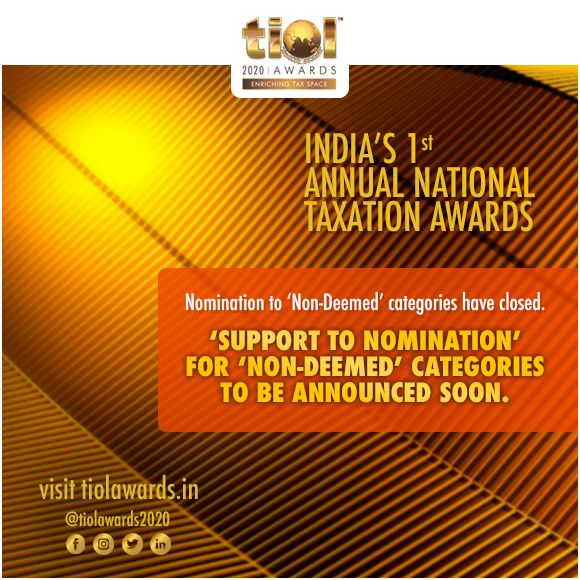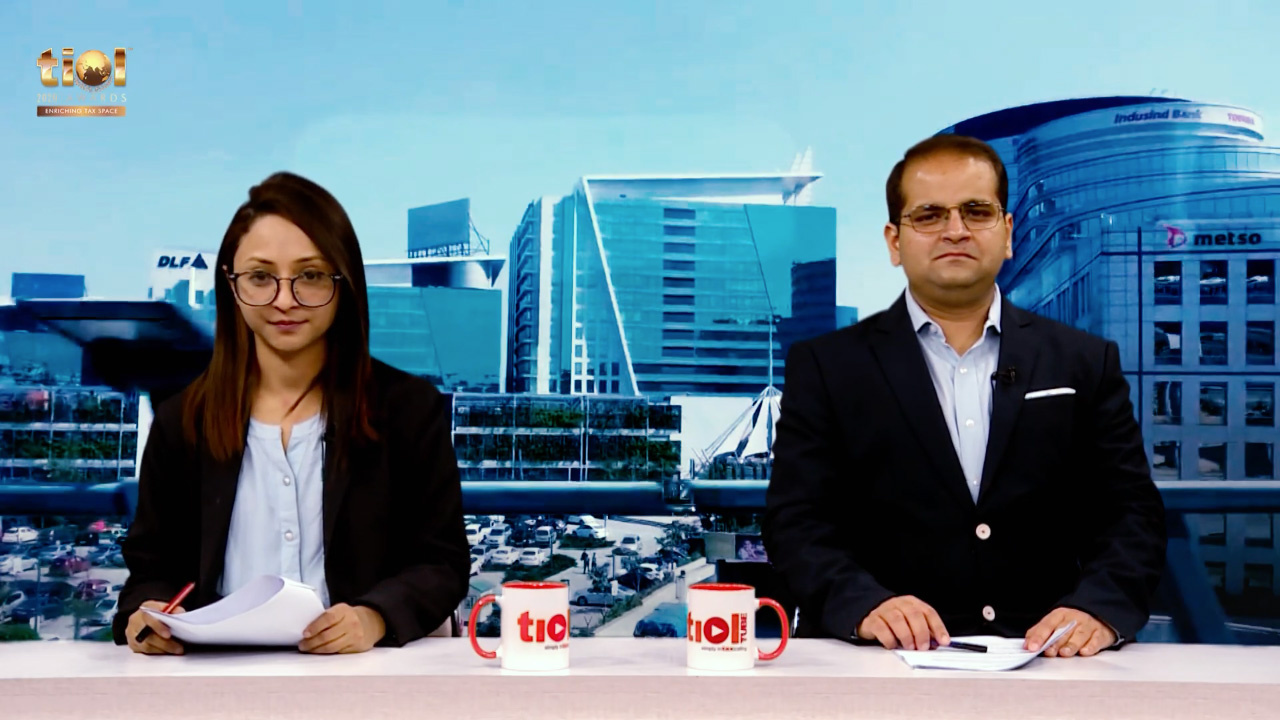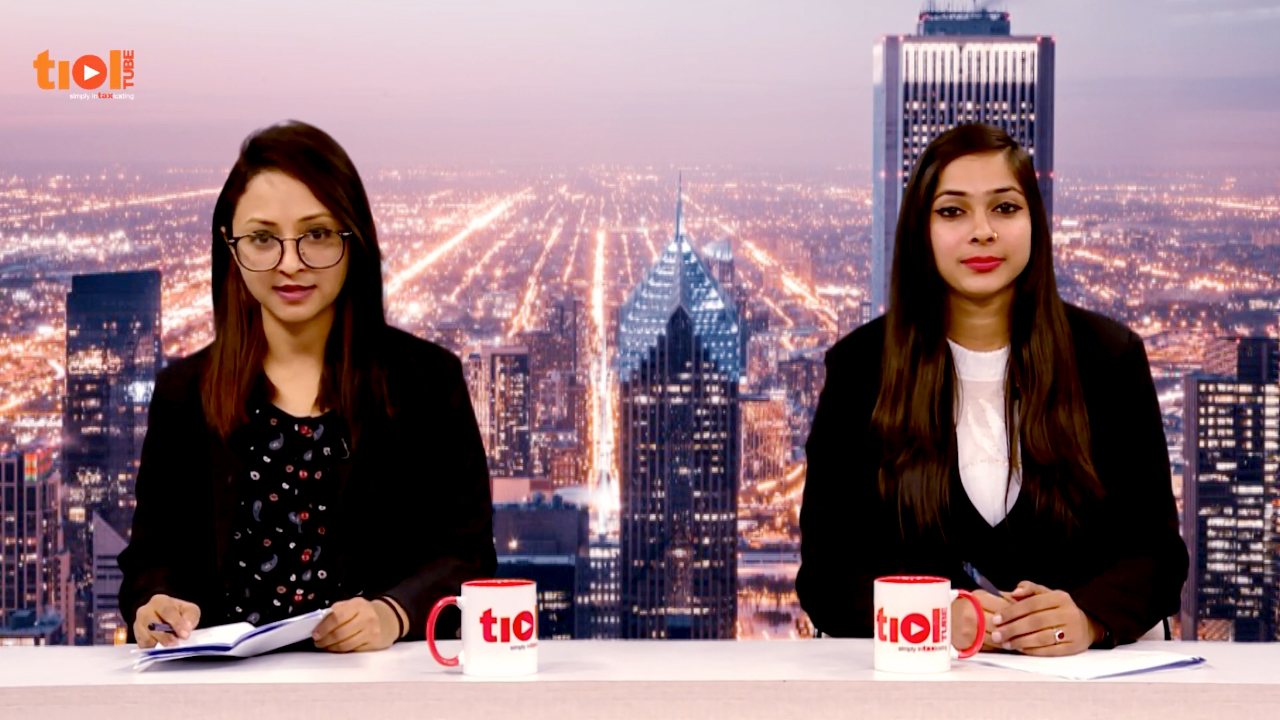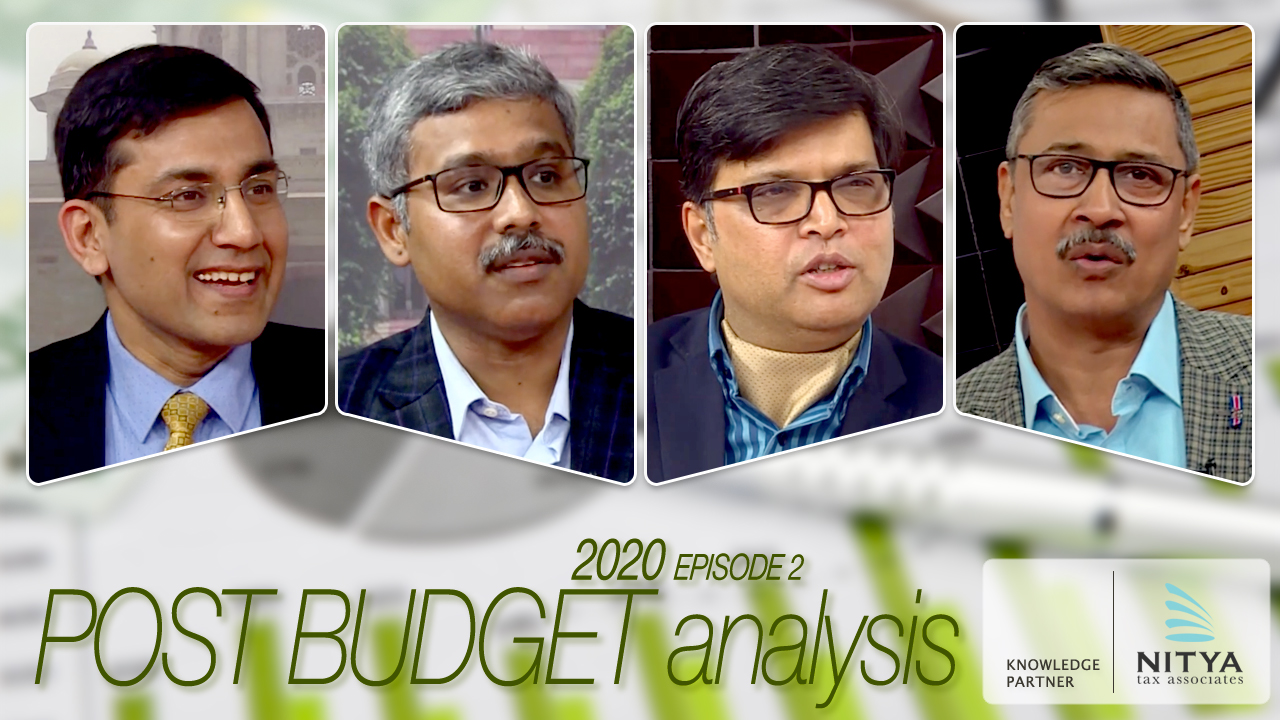|
2020-TIOL-530-HC-DEL-GST Hero Motocorp Ltd Vs UoI
GST - Petitioner migrated under the new GST regime and is now required to pay CGST and IGST under the provisions of the Goods and Services Tax (GST) regime in respect of intra-state, and also inter-state supplies made from the Uttarakhand unit - Immediately thereafter, CGST rules came into force and Notification No. 21/2017-CE was issued by Respondent No.1 rescinding the various area-based exemption notifications, including the exemption notification no. 50/2003-CE with effect from 01.07.2017 - Due to the rescission of the exemption notification, the beneficial incentives granted to the petitioner, ceased to continue w.e.f. 01.07.2017 - Since the withdrawal of the exemption notifications caused financial hardships, the negative impact thereof was discussed in the second GST Council meeting and Respondent No.1- Union of India in recognition of the hardships faced by the industries and conforming to the recommendations of the GST Council, decided that it would provide budgetary support to the eligible units for the residual exemption period by way of part reimbursement of GST, paid by the unit, limited to the Central Government's share of CGST and/or IGST retained after devolution of a part of these taxes to the States - Accordingly, in consonance with the recommendations of the GST Council, on 05.10.2017, the Central Government notified the Budgetary Support Scheme providing reimbursements of Central Government's share of the cash component of CGST and IGST i.e. 58% of CGST and 29% of IGST, in lieu of exemption provided under the exemption notification - In these circumstances, the Petitioner has preferred the present writ petition under Article 226 of the Constitution of India to seek a direction to Respondent No. 1 to grant “complete exemption by way of reimbursement of the amount of Central Goods and Services Tax (CGST) and Integrated Goods and Services Tax (IGST) for the residual period of exemption notification” dated 10.06.2003, that granted 100% exemption on excise duty and adherence of Industrial Policy.
Held:
++ Under the new taxing scheme, various central indirect taxes including the Central Excise Duty and several State indirect taxes have been subsumed in GST. It is a destination-based tax, - i.e. Goods and Services are taxed at the point where they are consumed, and not at the point of origin. Under GST law, the place of supply of goods and services assumes significance. There are several noticeable differences between the GST regime and the previous one pertaining to levies, taxes, exemptions etc. Once such area is the “exemptions”. The Legislature has sought to prune the exemptions that were provided by the Government in the previous regime. The GST predicates on the fact that there would be minimum exemptions. This was necessary in order to ensure that cascading of taxes is minimized and there is seamless transfer of the Input Tax Credit, which is one of the main cornerstones of the GST law. In this changed scenario, the Parliament being conscious of the exemptions that were granted as incentives against investments through a notification, while repealing the earlier legislations, specifically provided that such incentives shall not continue as privileges, if the notifications are rescinded on or after the appointed date provided under the Act.
++ The Council reiterated and maintained that under GST regime, exemptions cannot continue. However, in the spirit of helping the affected units to tide over the troubled times, it was inter-alia resolved that in case, the State or Central Government decides to continue any existing exemptions/incentives/deferral schemes, it would be administrated by way of re-imbursement mechanism through the budgetary route. In line with the recommendations of the GST Council, Respondent No.1 then framed the Budgetary Support Scheme for the eligible manufacturing units located in the States like Jammu & Kashmir, Uttarakhand, Himachal Pradesh and North Eastern States including Sikkim.
++ Under the aforesaid Scheme, for the remaining period, the units can only claim refund of taxes pertaining to just the Union Government's share of CGST (58%) and IGST (29%). Petitioner is peeved that the units that were eligible in various exemption notifications under the erstwhile regime have been granted only partial benefit as against 100% benefit. It contends that the policy decision arrived at vide Office Memorandum dated 07.01.2003, entitles them to grant complete benefit under the Budgetary Support Scheme. In the view of the Bench there is fundamental fallacy in the contention. Bench does not perceive that the Petitioner has any vested right to be entitled to budgetary support of entire CGST and IGST . The industrial policy of Respondent No.1 to grant area-based exemption has undergone complete change. Consequently, the exemption granted under the Central Excise Exemption Notification giving effect to the said policy has also lost its relevance and is no longer in force. Bench cannot now selectively concentrate on the benefits under the policies that are no longer in vogue. The comprehensive picture can be grasped only if an exercise is undertaken of the evaluation of the taxes post the GST. The new law entitles the Petitioner the input tax credit of all the taxes and cross utilization thereof which was not the position back in the day.
++ Ergo, in view of the proviso to Section 174(2)(c) of the CGST Act, the issue that arises for consideration is whether the doctrine of promissory estoppel can be invoked against a legislative act, because in the present case, the government has clearly acted in accordance with the law laid down by the Parliament. When the law itself has undergone a complete revision, can the doctrine of promissory estoppel still be invoked, in light of Section 174(2)(c) of the CGST Act? The issue that arises in the present petition has been firmly established in a string of judgments and is no longer a point which is untouched by dictum.
++ What clearly emerges from the decisions taken note of is that the plea of promissory estoppel cannot be enforced against an act done in accordance with the statutory provisions of law. Under Section 174(2)(c) of the CGST Act, express provision has been made by the Parliament to provide that any tax exemption granted as an incentive against investment through a notification under, inter alia, the erstwhile Central Excise Act, shall not continue as a privilege if the said notification is rescinded, and in the present case, the notification which granted 100% excise duty exemption was, in fact, rescinded. Thus, in the absence of any challenge by the Petitioner to the rescission of the said notification which granted exemption or to the vires of the proviso to Section 174(2)(c) of the CGST Act, no plea of promissory estoppel is maintainable. The language used in the proviso to Section 174(2)(c) is clear and unequivocal, and leaves no room for a different interpretation.
++ No merit in the petition, hence same is dismissed. [para 18, 21, 22, 32, 35, 36]
- Petition dismissed: DELHI HIGH COURT
2020-TIOL-529-HC-DEL-GST Aster Infrahome Pvt Ltd Vs UoI
GST - Anti-Profiteering - NAA had held that the total amount profiteered is Rs.5,30,34,074/- which includes GST @12% or 8% on the base profiteered amount of Rs.4,82,18,816/- and the total amount profiteered is to be paid to applicants no. 1 to 12 and the other eligible house buyers by the petitioner along with interest @18%; penalty is also imposable for contravention of s.171 of the Act - Petition filed before the High Court seeking quashing of this order dated 19 th November 2019.
Held: Respondents accept notice and are permitted to file counter affidavit within four weeks - Petitioner is directed to deposit 50% of the principal profiteered amount - The said amount shall be deposited in two equal monthly instalments and the amount deposited by the petitioner shall be kept in interest bearing Fixed Deposit Receipts by the Registry - Matter to be listed on 21 st April 2020: High Court
- Matter listed: DELHI HIGH COURT
2020-TIOL-36-AAR-GST
Electroplating And Metal Finishers
GST - Activity of Electroplating is "Supply of service" classifiable under heading 9988 - applicable rate of tax is 9% CGST [11/2017-CTR] for the period up to 30.09.2019 irrespective of whether the goods are owned by registered or unregistered persons; from 01.10.2019, if goods are belonging to another registered person, tax rate is 6% CGST and if goods are owned by unregistered persons, the tax rate would be 9% CGST: AAR
- Application disposed of: AAR
2020-TIOL-35-AAR-GST
Shapoorji Pallonji And Company Pvt Ltd
GST - Mobilisation advance, to the extent received prior to the implementation of GST, towards supply of Works Contract Service is not to be subjected to GST as per provisions of s.142(11)(b) of the CGST Act, 2017: AAR
GST - Determining eligibility of credit based on the transitional provisions is not answered as the same is not covered under the questions on which Advance Ruling can be sought u/s 97(2) of the CGST Act, 2017: AAR
GST - Section 142(11)(c) is applicable in cases with respect to transactions in which both VAT and Service Tax are paid in the pre-GST regime and on which GST would be leviable to the extent ‘supply' is made after the appointed date for the recipient who has actually paid the tax - in the present case, applicant has paid Service Tax on the advance received for which the applicant has raised invoice on their service receiver along with the component of service tax but no VAT has been paid/received from their customer on that part of the Mobilisation Advance pertaining to materials and, therefore, this provision does not apply to the case at hand - Held that the transitional provisions u/s 142(11)(c) is not applicable to the case of the applicant: AAR
- Application disposed of: AAR
2020-TIOL-34-AAR-GST
Automative Components Technology India Pvt Ltd
GST - In terms of Schedule II, Entry Sr. no. 1, 'transfer of the title in goods' is supply of goods - in the present case as there is transfer of the title in moulds for a consideration and the supply is in the course of business, therefore, same constitutes 'supply of goods' in terms of s.7 of the CGST Act and GST is liable to paid on such supply - insofar as the question as to whether the Indian buyer would be eligible to take credit of the GST paid to the appellant for said purchase, same is not covered under any of the categories specified u/s 97(2) of the Act and, therefore, not within the ambit of the Authority: AAR
- Application disposed of: AAR
2020-TIOL-12-NAA-GST
Director General of Anti-Profiteering Vs Aparna Constructions And Estates Pvt Ltd
GST - Anti-Profiteering - s.171 of the CGST Act, 2017 - It is established from the perusal of the facts and the report of DGAP that the respondent has benefited from the additional ITC to the extent of 4.04% of the turnover during the period from 01.07.2017 to 31.03.2019 and hence the provisions of s.171 have been contravened by the respondent inasmuch as he has not passed on the above benefit to his customers by commensurate reduction in the prices of the flats - profiteered amount is determined as Rs.22,59,91,979/- inclusive of GST @12% on the base profiteered amount of Rs.20,17,78,553/- in terms of rule 133(1) of the CGST Rules, 2017 - respondent has realised an additional amount of Rs.4,74,865/- which includes both the profiteered amount @4.04% of the taxable amount (base price) and 12% GST on the said profiteered amount from applicant no. 1 - similarly, he has further realised an additional amount of Rs.22,55,17,114/- which includes the profiteered amount and GST 12% from the flat buyers other than the applicant no.1 and who are all identifiable as per the documents available - respondent is directed to pass on this amount of Rs.22,55,17,114/- and Rs.4,74,865/- to the other flat buyers and the applicant no.1 respectively along with interest @18% from the dates from which the above amount was collected till the date the payment is made, within a period of three months - Commissioners CGST/SGST to monitor and ensure that the benefit is passed and report compliance within a period of four months - SCN to be issued seeking imposition of penalty u/s 171(3A) of the CGST Act, 2017 read with rule 133(3)(d) of the CGST Rules: NAA
- Application allowed: NAA | |







